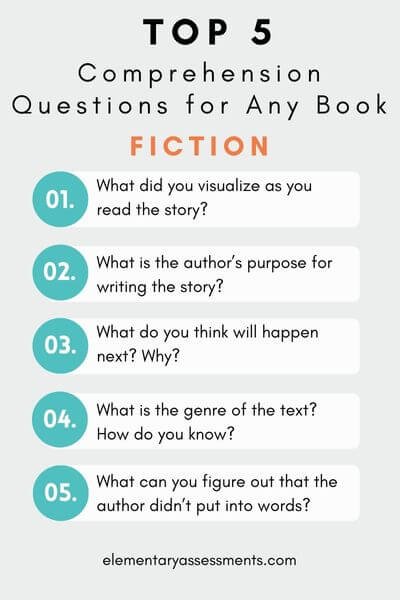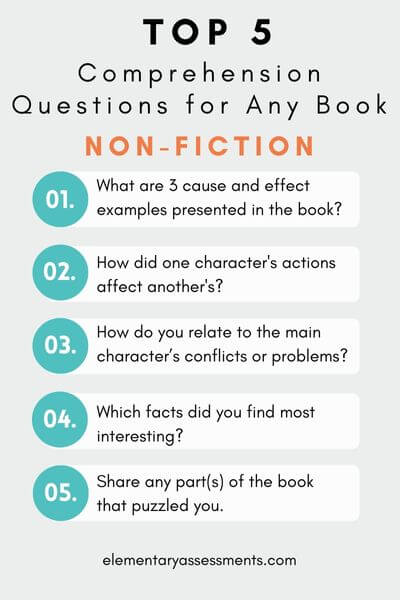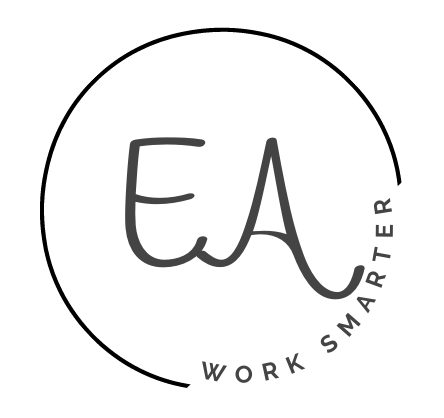If you’re looking for comprehension questions for any book, you’ve landed in the right place.
Whether you are a teacher, parent, or someone who helps individuals develop reading skills, it can be helpful to have a list of comprehension questions on hand to assess how well the person comprehended the text.
The issue, though, is that many questions are book-specific, meaning they’re not too useful for other books.
Wouldn’t it be nice to have a collection of comprehension questions that you can use for any book?
That’s what I’ve done here.
I’ve compiled a list of comprehension questions for any book.
From now on, no matter the book, you’ll be able to conveniently assess how well the reader understood what they just read.
Comprehension Questions For Any Book
Following you will find a quality collection of comprehension questions for any book… fiction or nonfiction.
Fiction
1. How would you have solved the main character’s problem?
2. What did you visualize as you read the story?
3. Where in the story were you confused? What strategies did you use to move past this roadblock?
4. What is one text-to-self connection you have after reading the book?
5. How did the author make the text enjoyable?
6. What is the author’s purpose for writing the story?
7. How would you begin and end a summary of this book?
8. What reading strategies did you apply in order to help you comprehend the book?
9. If you would step into this story, what is the first thing that you would do and why?
10. How was your prior knowledge confirmed or challenged after reading the book?
11. What do you think will happen next? Why?
12. Are there any examples of figurative language in the book? Share them.
13. What is the main conflict in the story?
14. How does the setting add or take away from the story?
15. What are the major events in the story?
16. How would you retell the ending of the story?
17. What is the genre of the text? How do you know?
18. How has your thinking or mindset shifted after reading the book?
19. Which text features did the author use to help you understand the information better?
20. How is the setting significant in this story? Explain.

21. Why or why not does the title fit the book?
22. How are you similar or different from any of the characters in the book?
23. What can you figure out that the author didn’t put into words?
24. If you could rename the title of the book, what would it be? Why?
25. What is the genre of the text? How do you know?
26. If you could rename the title of the book, what would it be? Explain.
27. How does the primary character remind you of yourself, another character, or someone you know?
28. What is the theme of the book? How do you know?
29. What is one image that you would choose to symbolize the main idea of the story? Sketch it.
30. What’s the main idea of the story?
31. Share one or two deep connections that you have with one of the characters.
32. What would you and your favorite character discuss over lunch?
33. If you could ask the main character two questions, what would they be and why?
34. What are a few “lingering questions” that you still have after reading?
35. How would you have changed the ending of the story?
36. What was your favorite part of the book?
37. Based on evidence from the text plus your prior knowledge, what do you think will happen next in the story?
38. What lesson is the author trying to teach you? Explain.
39. Which parts of the story did you have trouble understanding?
40. How would the story be different if it were told from the point of view of a contrasting character?
41. What are the best and worst parts of the book? Explain?
42. Sketch a book cover that is different from the actual cover. Why did you choose this particular design?
43. What is a text-to-text connection you have with this book?
44. Are there any words that confused you while reading? Which word and which page?
45. What examples show how the author used descriptive language to make the story more vivid?
46. What is the tone or mood of the story? Describe.
Non-Fiction
47. What are 3 cause and effect examples presented in the book?
48. How would the story be different if it were set in a different time period?
49. Which facts did you find most interesting?
50. What information is provided through illustrations such as diagrams, drawings, charts, and maps?
51. How did one character’s actions affect another’s?
52. What questions do you have now after reading this material?
53. Who or what type of person would be most interested in reading this book?
54. Where in the book did you have to infer what the author was trying to tell you?
55. Which part(s) of the book puzzled you?

56. What did you learn that you didn’t know before?
57. What are some words you didn’t know as you read? How did you use context clues and/or a dictionary to define them?
58. What are 3-5 new facts you have learned after reading the selection?
59. If you could rename one of the sections of the book, what would the new title be? Explain.
60. What do you still wonder after reading the book?
61. Think about one of the characters from the book. Why do you think he or she would make a good friend?
62. Which characters and events in this book would make for a great movie?
63. What experiences in your life have helped you understand the main ideas presented in the book?
64. Which parts of the story left you scratching your head?
65. What motivated the main character’s actions, and were his/her actions justified?
66. How do you relate to the main character’s conflicts or problems?
67. What is the most important message that the author wanted you to learn from this text?
68. How did the headings and subheadings help you find information in the text?
Final Thoughts: Comprehension Questions For Any Book
Quickly assess students’ understanding of the text using these open-ended comprehension questions for any book.
No matter what texts readers are devouring, this list of questions pairs well with all.
So include a few of these comprehension questions for any book in your reading lessons this week.
Related: Boost comprehension with Reading Is Thinking strategies.
